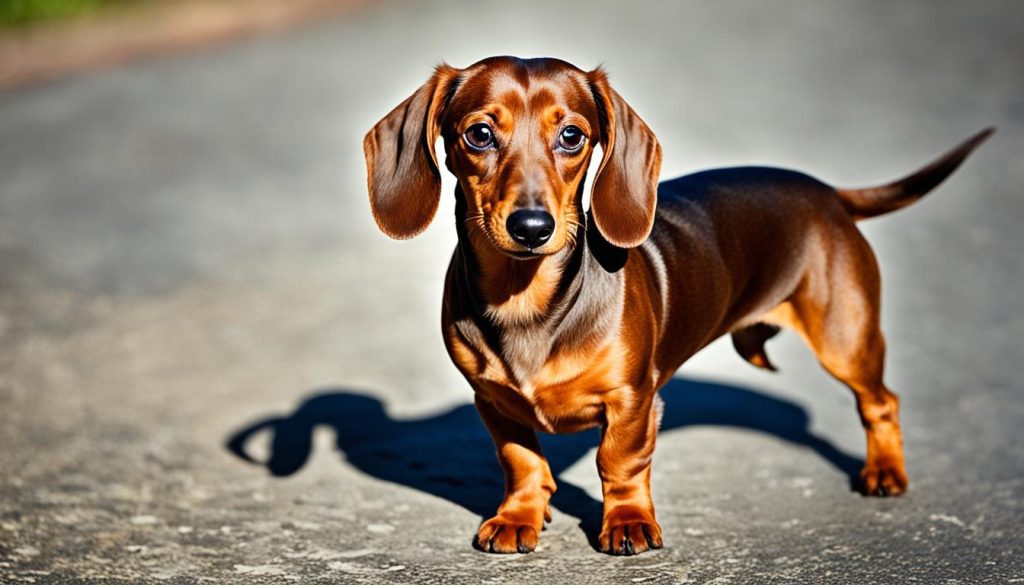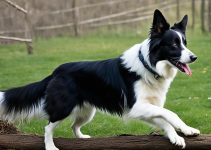Greetings! Today, I want to talk about a fascinating topic that many dog lovers ponder: Are Dachshunds smart? These adorable, sausage-shaped pups have captured the hearts of many with their unique appearance and affectionate nature. But when it comes to intelligence, do they measure up?
To understand the intelligence of Dachshunds, let’s explore their characteristics. These spirited canines were originally bred to hunt badgers, showcasing their tenacity and bravery. Over time, they have transitioned into beloved pets and even popular show dogs. Available in different sizes and coat varieties, each with its own grooming requirements, Dachshunds captivate us with their expressive faces and loving personalities.
When it comes to smarts, Dachshunds do not disappoint. They possess an impressive level of intelligence, making them trainable companions. However, their independent streak can sometimes lead to stubbornness, challenging their owners during training sessions. Nonetheless, their loyalty and devotion are unmatched, making them a top choice for families across the United States.
Are Dachshunds Smart?
- Dachshunds are intelligent dogs that were originally bred for hunting badgers.
- Their affectionate nature and expressive faces make them popular family pets.
- Dachshunds’ intelligence, playfulness, and loyalty contribute to their charm.
- Training and socialization are essential to shape their behaviors.
- Dachshunds can be good watchdogs due to their loud bark.
The History of the Dachshund Breed
The Dachshund breed has a fascinating history that dates back to 15th century Germany. Originally bred for their exceptional hunting skills, particularly in hunting badgers and rabbits, Dachshunds possess a unique set of traits that make them highly effective in the field. Their long and robust bodies, coupled with their short legs, allow them to maneuver through tight dens and dig with remarkable agility.
Throughout their development, Dachshunds were bred in different sizes to suit various hunting purposes. These distinctions included the standard size for badger hunting, miniature size for hunting small game, and even the rabbit-sized kaninchen variety. This versatility allowed hunters to employ Dachshunds for specific hunting tasks, depending on the target prey.
Over time, Dachshunds transitioned from working dogs to cherished companions. Their intelligence, loyalty, and distinct physical appearance captivated the hearts of dog enthusiasts across Europe. Dachshunds were among the first breeds to be registered with the American Kennel Club (AKC) in the United States, solidifying their place in the world of purebred dogs.
Despite facing a temporary decline in popularity during the World Wars, Dachshunds managed to regain their status as beloved pets in households worldwide. Their hunting prowess is still highly regarded today, and they continue to be showcased in dog shows, where their remarkable skills are highlighted.

| Dachshund Breed History | Significance |
|---|---|
| Originated in 15th century Germany | Foundation of the breed |
| Bred for hunting badgers and rabbits | Dachshund’s exceptional hunting skills |
| Developed in different sizes | Versatility for varied hunting purposes |
| Recognized by the AKC | Official recognition as a purebred breed |
| Popularity resurgence post-World Wars | Regaining status as beloved companions |
| Continued recognition of hunting abilities | Continued historic significance |
The Unique Appearance and Silhouette of Dachshunds
Dachshunds are easily recognizable by their unique appearance and silhouette. Their distinctive body shape is characterized by long, low bodies and short legs. This design is not just for show, but a functional adaptation for their hunting origins. The elongated body allows them to navigate and dig into dens, making them ideal for hunting small game like badgers and rabbits.
Dachshunds come in different sizes, ranging from miniature to standard. Each size has its own charm and appeal, but all share the same iconic body shape. Additionally, Dachshunds have various coat varieties, including smooth, long-haired, and wire-haired. These coat types not only add to their visual appeal but also require different grooming routines to maintain their health and appearance.
One of the most notable features of Dachshunds is their expressive faces. They have almond-shaped eyes that gleam with intelligence and curiosity. Their long, floppy ears give them a charming and endearing look. Dachshunds also have a wide range of coat colors and patterns, from solid shades to dappled or brindle patterns.
Here is an image showcasing the unique appearance of a Dachshund:

The Personality and Temperament of Dachshunds
Dachshunds are known for their spunky, brave, and playful personality. Their strong hunting heritage has made them curious and tenacious, always ready for an adventure. They are fiercely loyal to their families and can be protective, making them excellent companions and watchdogs.
Despite their sometimes aloof demeanor, Dachshunds have an affectionate nature and crave human companionship. They enjoy cuddling up with their owners and being part of the family activities. However, their independent streak can make them a bit stubborn at times, requiring consistent training and socialization from a young age.
One notable characteristic of Dachshunds is their vocal nature. They have a loud bark and can be quite vocal, which can be advantageous in alerting their families to potential dangers. However, excessive barking can also be a result of boredom or anxiety, making it important to provide them with mental stimulation and regular exercise to keep them happy and calm.
When it comes to training, Dachshunds are intelligent and quick learners. Their cleverness can sometimes lead to mischief if not properly stimulated, so mental exercises and challenges are essential to prevent boredom. With consistent training and positive reinforcement, Dachshunds can excel in various tasks and activities.
To give you a better understanding of the personality and traits of Dachshunds, here’s a breakdown:
| Trait | Description |
|---|---|
| Loyal | Deeply devoted to their families and protective of their loved ones. |
| Playful | Enjoy interactive playtime and games with their owners. |
| Curious | Have a strong sense of exploration and love to investigate their surroundings. |
| Stubborn | Can be independent-minded and require patient and consistent training. |
| Affectionate | Crave human companionship and bond closely with their owners. |
| Watchful | Have a keen sense of alertness and make excellent watchdogs. |
Understanding the unique personality and temperament of Dachshunds is key to providing them with the care and training they need. With the right approach, Dachshunds can thrive as loving and loyal companions.
Conclusion
Owning a Dachshund can bring a lot of joy and fulfillment to your life. Their compact size and low-maintenance coat make them suitable for various living situations, including apartments and smaller homes. They are loyal and loving companions who will be by your side through thick and thin.
However, it’s important to acknowledge that Dachshunds also come with their fair share of challenges. Their stubborn streak can make training a bit more challenging, requiring patience and consistency. Additionally, their unique body shape puts them at a higher risk for certain health issues, such as back problems, which may require extra care and attention.
Living with a Dachshund means understanding their unique needs and behaviors. They have a tendency to dig, which may require providing them with appropriate outlets for their natural instincts. They are also known for their propensity to bark, so training and socialization from a young age can help mitigate excessive barking.
Overall, Dachshunds can be incredibly rewarding companions for those who are willing to put in the effort and understand their specific needs. With proper care, training, and attention, owning a Dachshund can bring years of love, laughter, and cherished memories to your life.






